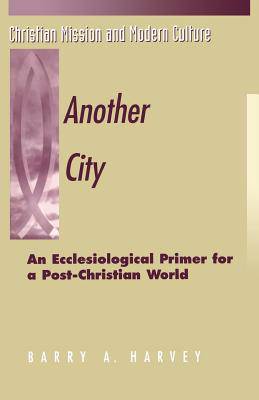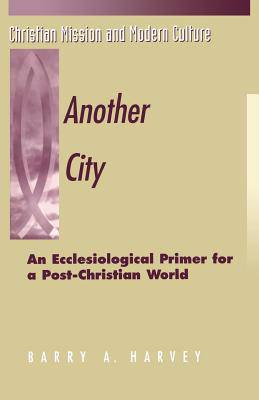
- Afhalen na 1 uur in een winkel met voorraad
- Gratis thuislevering in België vanaf € 30
- Ruim aanbod met 7 miljoen producten
- Afhalen na 1 uur in een winkel met voorraad
- Gratis thuislevering in België vanaf € 30
- Ruim aanbod met 7 miljoen producten
Zoeken
€ 61,45
+ 122 punten
Omschrijving
What is the church, and what is essential to it particularly in a post-Christian age?
In contrast to "the City," that is, the world (including the hedonism and narcissism of popular culture) that virtually all human beings now inhabit, the author calls upon the church to remember that it is "Another City" that does not compromise itself by giving allegiance to any political entity that belongs to this world. He points out how the hedonism and narcissism of "the City" or popular culture have been embraced also by those who make up Christ's body, the church, without seeing that this contradicts biblical faith. In contrast, the early Christians represented a subversive presence or "Another City" within the wider Roman society. In time, however, the church succumbed to "the City, became aligned with the empire, gained power, and began to render to Caesar what belonged to God." Today what was once called "Christendom" is rapidly eroding. Christianity no longer dominates as in the past. In such a situation, Harvey says, it is time for the church to remember that it is "Another City" and that it does not compromise itself by giving allegiance to any political entity that belongs to this world. Instead, the church has the courage to live, like Israel of old, in the diaspora as a distinct minority, remaining an uncompromising and faithful servant of God's final (though still future) triumph in the risen Christ. Barry A. Harvey teaches systematic theology at Baylor University.Specificaties
Betrokkenen
- Auteur(s):
- Uitgeverij:
Inhoud
- Aantal bladzijden:
- 208
- Taal:
- Engels
- Reeks:
Eigenschappen
- Productcode (EAN):
- 9781563382772
- Verschijningsdatum:
- 1/06/1999
- Uitvoering:
- Paperback
- Formaat:
- Trade paperback (VS)
- Afmetingen:
- 121 mm x 184 mm
- Gewicht:
- 222 g

Alleen bij Standaard Boekhandel
+ 122 punten op je klantenkaart van Standaard Boekhandel
Beoordelingen
We publiceren alleen reviews die voldoen aan de voorwaarden voor reviews. Bekijk onze voorwaarden voor reviews.







